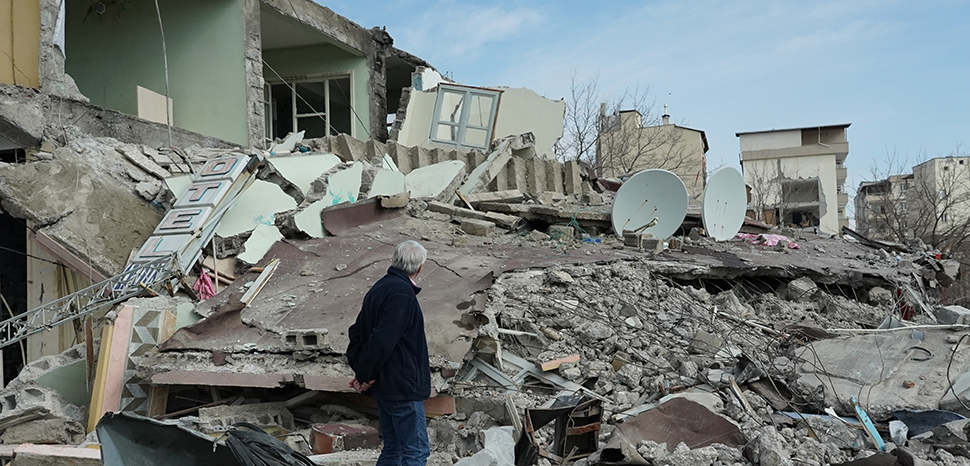The fighting in Ukraine may be far from over, yet plans are already underway for the post-war reconstruction of the country, with companies and governments set to contribute. Elsewhere, post-conflict rebuilding and recovery initiatives have made varying degrees of progress in Ethiopia, South Sudan and Iraq.
The commercial opportunities in the aftermath of wars and natural disasters can be considerable. But the fragility of these jurisdictions means multinationals must ensure their activities support stability and development, otherwise they risk seeing early business gains evaporate.
Countries recovering from destructive events are keen on foreign direct investment to rebuild shattered infrastructure and stimulate economic growth – with companies able to play a constructive role in stabilization efforts. In so doing, they gain reputations as responsible economic players, winning the trust of local customers and authorities.
But corporate missteps, advertent or not, can incur operational and reputational damage – particularly in post-disaster settings in the sometimes-chaotic rush to start relief and reconstruction efforts.
In the wake of the Asian tsunami, there were reports of private contractors in Indonesia using substandard building materials to increase profits. Following the Haitian earthquake, contractors came under scrutiny over the number of locals benefiting from cash-for-work programs aimed at promoting the stabilization process.
In South Sudan and Iraq, energy majors have buttressed these countries’ oil-and-gas-dependent economies – hydrocarbon extraction helping them recover, albeit fitfully, from devastating wars. But in a number of instances, commercial engagement has come under intense scrutiny, with some firms linked to human rights abuses in South Sudan and extensive pollution in southern Iraq.
Post-conflict and post-disaster jurisdictions are some of the most challenging markets to enter from a risk perspective. Companies must identify and mitigate immediate concerns – such as threats to the safety of staff and assets – and assess operational impact on the reconstruction and normalization process. They also need to understand the regional geopolitical dynamic, since this may impose limitations on business activities.
The inherent fragility of countries recovering from major upheavals means conditions may change rapidly. Following wars, political transitions can collapse as a result of power struggles, throwing countries back into turmoil, as in the case of Sudan. Unresolved sovereignty issues might cause frozen conflicts to suddenly erupt, such as the second Nagorno-Karabakh war. And government corruption and incompetence can spark waves of public anger, witnessed in Iraq several years ago and in the aftermath of the recent Turkish earthquake.
As well as the standard due diligence checks required for challenging environments, corporates entering these markets should draw up an operational risk framework assessing how their investment will be deployed; who is going to benefit; how it might be perceived; and whether there is any possibility of it inadvertently contributing to local tensions.
Risks might include the potential for commercial ties with one community alienating rival communities; being seen to be exploiting weak or poorly enforced regulations; or doing business with discredited commercial and political actors, directly or indirectly linked to the conflict or disaster the country is recovering from.
Geopolitical trends need to be analyzed as they may have significant operational implications. Countries emerging from major crises can come under the influence of – or face pressure from – regional and global powers pursuing their own agendas. Such encroachment can close off or undermine investment from firms associated with geopolitical rivals.
For example, Beijing sought to further its strategic interests in the Indian Ocean through Chinese-implemented economic projects in Sri Lanka during the civil war and the Maldives after the Asian tsunami. China’s engagement with both countries, says AidData, has affected their relations with other partners, including the US. More recently, Iran and its Iraqi proxies are suspected of a series of missile attacks apparently aimed at sabotaging the gas sector in Iraq’s Kurdish region, in which the US is heavily invested.
Operational risk and geopolitical assessments should be made regularly given the volatility and fragility of countries recovering from wars and disasters. In particular, firms need to continually track their footprint in these markets – essentially monitor and mitigate the impact of business activities on local stakeholders to ensure ESG standards are being maintained.
Indeed, businesses are being encouraged to adopt heightened human rights due diligence in conflict-affected and high-risk areas, which requires them to assiduously interrogate and address social and environmental risks and ensure they are respecting international humanitarian law. Campaigners have been pushing for this approach to be included in the European Commission’s proposed corporate sustainability due diligence directive – a major legislative initiative mandating companies to act more responsibly and ethically in their regions of operation.
The development of exacting ESG regulation is welcome and necessary. Yet given the potential for corporate setbacks in unstable jurisdictions, companies exploring or pursuing commercial opportunities in these territories would be well advised to approach risk and mitigation with the rigor future regulatory regimes will require of them.
David Claridge is strategic advisor to FiscalNote and is a founder and former CEO of Dragonfly, the geopolitical and security intelligence service which is part of the FiscalNote group of companies. A commentator on security and intelligence issues, David holds a PhD in International Relations from the University of St Andrews.
The views expressed in this article belong to the authors alone and do not necessarily reflect those of Geopoliticalmonitor.com.




